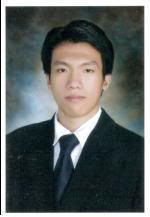Nakama Yukie News
TOKYO — They are everywhere — on TV variety shows, in dramas, singing at concerts, endorsing products on billboards and in commercials, attending glittery events. No matter what channel you watch or which magazine you read, you'll see the same faces — Aya Ueto, SMAP, Yuko Takeuchi, Ayumi Hamasaki, Yukie Nakama, Becky, Kyoko Hasegawa, Papaya Suzuki and countless more.
The "talent" business in Japan is very different from the West. Someone like 19-year-old Ueto, for example, would seem to be making a fortune. After all, she is the TV commercial queen, a movie star, as well as a regular at promotional events. Yet she is just an employee of her agency, Oscar Promotion. She is paid a wage and a percentage of what Oscar negotiates with its clients — the opposite of the U.S. where the stars pay their agents a percentage.
The production companies recruit their stars at a young age, train them and then supply them to the media, movies and events. When a new TV show or product endorsement is announced, the media get faxed invitations to the press conference which they dutifully attend. The photos are then used to fill the tabloid magazines, while the TV variety shows replay the same footage four or five times on each segment.
"It's like a revolving sushi restaurant or a UFO Catcher at a game center: there is a never-ending selection to pick from," says Dave Spector, an American who has been a commentator on TV variety shows in Japan for 20 years.
Japan's entertainment world is a tightly knit relationship between the powerful production agencies and the media. Companies like Oscar, Johnny's Jimusho, Sun Music and Yellow Cab have tremendous power when it comes to their talents, so much so that very few newspapers, magazines or TV stations dare carry negative stories. "The production companies are money-making machines," says Tario Cham, who has operated the website jpop.com since 1996. "They work very hard to create an image that sells but also work very hard to protect that image."

